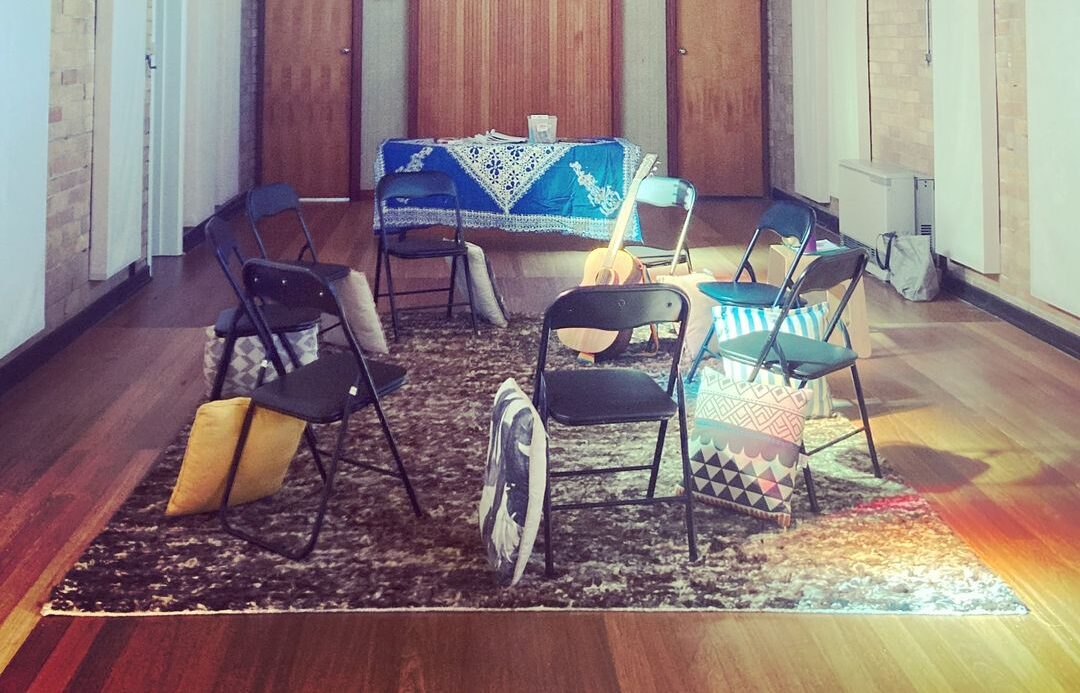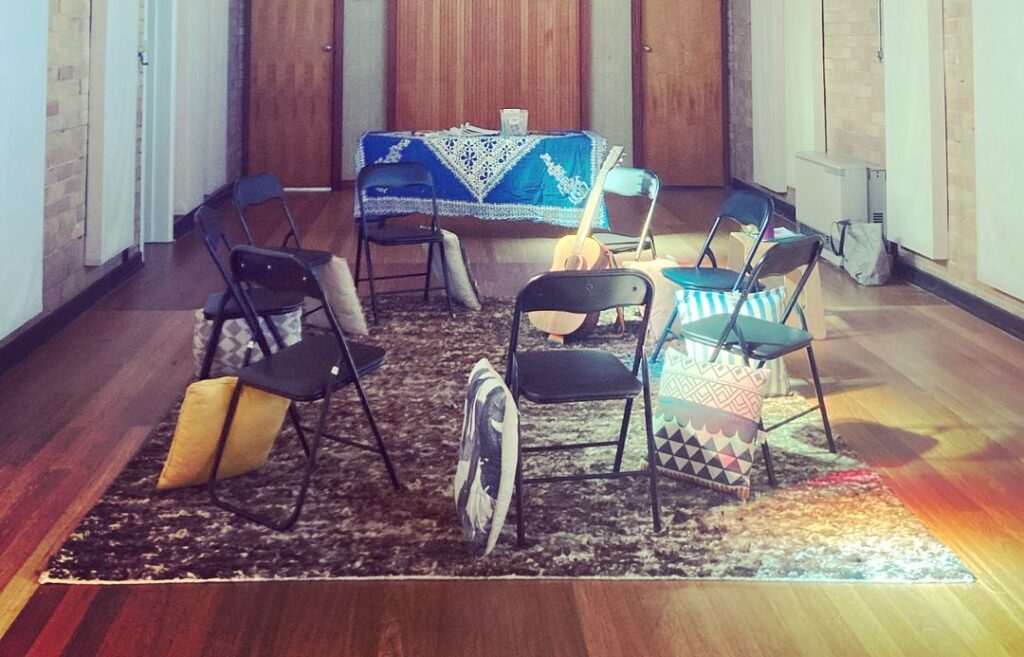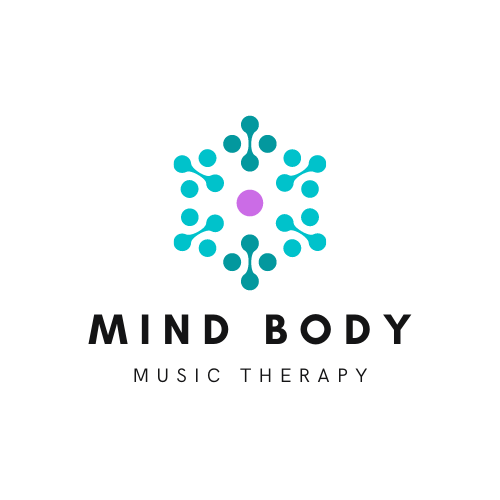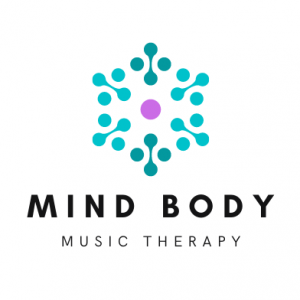
Music Therapy Groups: Finding a Safe Way to Reconnect

When you’re living with mental health challenges, chronic illness or neurodivergence, it can be hard to find places where you feel seen, supported and safe enough. And yet, the desire to connect and belong is part of being human
At Mind Body Music Therapy, I have a deep and personal understanding of how health and mental health struggles can create barriers to connection. And that’s exactly why I’m passionate about offering supportive music therapy groups – to provide a space to try connecting with others through music, and to find ways to feel safe enough in the process.
You don’t need to be musical: You are welcome just as you are
Music therapy groups have a focus on how music can be helpful – not on how well you sing or play. Through supportive musical experiences we can use music to express, explore, learn and play. This could include listening, playing, singing, talking, songwriting and more. In each session, I take care to make sure you feel comfortable to participate in whatever way works for you, and there is no right or wrong way to engage. Even listening to music together can be extremely powerful and connecting.
Group music therapy sessions are welcoming spaces where you can be yourself and seek support. There is no pressure to be ‘good’, happy, talented, or ‘perfect’ (whatever that means!) Through the support of me, the therapist, and other group members, we use music to support our emotional and social wellbeing, while respecting boundaries and pace.
A space to feel understood
I take care to match you to the right group to ensure you’re surrounded by people who get it. Groups are guided by strengths-based, trauma-sensitive and neuro-affirming principles. I offer a range of groups to ensure your needs are met. Current groups include:
- Music for Social Connection (women’s group): A supportive, ‘safe-enough’ place for women to connect with others through music
- Music Therapy for Autistic Teens/Young Adults – groups are available for a range of needs levels
- Tune In: Music and Emotions – develop your emotional intelligence and identify ways to manage and embrace a range of emotions through music.
What Happens in a Session?
Each group is different, because the people in it are different. Depending on the group’s needs and energy, we might explore:
- Playing and/or singing familiar songs
- Music listening and discussion
- Sharing and reflection (always optional)
- Rhythm, musical games and movement.
- Therapeutic Songwriting.
You’re always encouraged to participate in whatever way feels right for you. Some people play or sing, and others just listen. There’s no right or wrong way to engage.
Why Group Music Therapy?
When words feel too hard – or just not enough – music can open up a different kind of conversation. Music can help to build empathy, release tension, improve mood, and create shared meaning. In our groups, people often say they feel less alone, more connected, and gently re-energised by the experience.
You might not feel ready yet to jump into something new, and that’s okay. If you’d like to find out more about what to expect, or to speak to me (Kate), please do reach out for a free 15-minute phone consult to talk it through.
Ready to explore how music might support you?
Get in touch for more information or to book a free consult.



